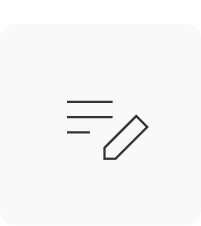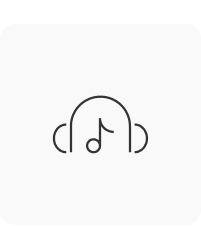"Take Your First Step into Korean Learning!"
Main topics of the Level 1 course:
- Basic greetings
- How to count numbers in Korean
- Basic grammar for forming your first Korean sentences
- Present and past tense
- How to say "who", "why", and "how" in Korean
Table of Contents
![]() Average lesson length: 13 minutes
Average lesson length: 13 minutes
Lesson 1. Hello. Thank you. / 안녕하세요. 감사합니다.
Lesson 2. Yes. No. What? / 네. 아니요. 네?
Lesson 3. Good-bye. See you. / 안녕히 가세요. 안녕히 계세요. 안녕.
Lesson 4. I’m sorry. Excuse me. / 죄송합니다. 저기요.
Lesson 5. It’s me. What is it? / 저예요. 뭐예요?
Lesson 6. What is this? This is … / 이거 뭐예요? 이거…
Lesson 7. This, That, It / 이, 그, 저
Lesson 8. It’s NOT me. / 아니에요.
Lesson 9. Particles for Topic and Subject / 은, 는, 이, 가
Lesson 10. have, don’t have, there is, there isn’t / 있어요, 없어요
Lesson 11. Please give me. / 주세요.
Lesson 12. It’s delicious. Thank you for the food. / 맛있어요. 잘 먹겠습니다. 잘 먹었습니다.
Lesson 13. I want to … / -고 싶어요
Lesson 14. What do you want to do? / 뭐 하고 싶어요?
Lesson 15. Sino-Korean Numbers / 일, 이, 삼, 사
Lesson 16. Basic Present Tense / -아요, -어요, -여요
Lesson 17. Past Tense / -았/었/였어요 (했어요)
Lesson 18. Particles for Location / 에, 에서
Lesson 19. When / 언제
Lesson 20. Native Korean numbers / 하나, 둘, 셋, 넷
Lesson 21. Negative Sentences / 안, -지 않다
Lesson 22. 하다 verbs
Lesson 23. Who? / 누구?
Lesson 24. Why? How? / 왜? 어떻게?
Lesson 25. From A To B, From C Until D / -에서/부터 -까지
Review What You’ve Learned in Level 1
Why you'll LOVE our Essential Korean Curriculum
All Levels Covered Short and Digestible Lessons Fun Story-based Reviews Review Quizzes and Interactive Audio Lessons
By simply following our curriculum that covers 10 levels, you can take your Korean skills from absolute beginner all the way up to advanced.
Each lesson is bite-sized and easy to understand, as it focuses on one grammar point at a time and provides many example sentences.
You can review the entire course through a fun story! The final lesson of each course features a fun story that allows you to review all the grammar and vocabulary introduced in the course.
You can test your new knowledge through review quizzes and interactive audio lessons, where our teachers ask you questions, and you can respond and check where you need to improve.
Who teaches this course?


What you can find in this course:

Lesson notes

MP3 file

PDF file

Sample dialogues

Sample dialogues

Review lesson
[Updated] Learn to Read and Write in Korean (Hangeul)![]()
#Hangeul #KoreanLetters #AbsoluteBeginners
How Korean Sentences Work![]()
#KoreanSentences #Grammar #Beginner
30 Essential Korean Adjectives For Beginners![]()
#KoreanAdjectives #Vocabulary #Beginner
20 Essential Korean Phrases For Beginners![]()
#KoreanPhrases #Speaking #Beginner
Level 1 Textbook ![]()
Level 1 Workbook ![]()
Level 1 Textbook & Workbook Package ![]()
More courses & books you might also like
[Updated] Learn to Read and Write in Korean (Hangeul)![]()
#Hangeul #KoreanLetters #AbsoluteBeginners
How Korean Sentences Work![]()
#KoreanSentences #Grammar #Beginner
30 Essential Korean Adjectives For Beginners![]()
#KoreanAdjectives #Vocabulary #Beginner
20 Essential Korean Phrases For Beginners![]()
#KoreanPhrases #Speaking #Beginner
Level 1 Textbook ![]()
Level 1 Workbook ![]()
Level 1 Textbook & Workbook Package ![]()






About lesson 30 and the question from 현우 about why 화장 (make-up) + 실 (room) =
화장실 = toilet, bathroom in a lot of languages. It might come from French, you can say “faire sa toilette” or “se laver” meaning “washing yourself”, making yourself pretty/clean. The place where you do it is “la salle de bain” (the bathroom) but perhaps in the old days it was the room to do your “toilette” (making yourself clean/pretty. I don’t know, it makes sense for me ^^.
This has probably been asked before – or I am being dense but; in Lesson 13 & 14 there is the word 명사 in the lesson title – but I can’t see where this comes into the lesson. Please can anyone help me with this? Thank you!
Here is a whatsapp group for beginners and also intermediate ! Welcome 😉
https://chat.whatsapp.com/GBpKaONHHSM7AhqMbOrry6
명사 means “noun” in English
Adjectives/Descriptive verbs + -ㄴ + 명사
” 작은 집” is an example used in Lesson 13.
=> 작은 is the adjective and 집 is the 명사.
I hope this was helpful 🙂
Super, great! Thank you! I feel rather embarrassed that I didn’t figure that one out!! Thank you again.
That’s alright. You’re welcome!!
Hi! Here is a link to Kakao chat where native speakers help us out learning Korean.
There are several regular group study sessions where you can talk with Korean learners and Korean natives!
https://open.kakao.com/o/gQkDANTd
안녕하세요 TTMIK Team, 저는 레벨 3 끝났어요. 레벨 4 시작하기 전에 전체 레벨을 반복할 거예요. 감사합니다 😊
for 같 if you are saying “like” in a sentence but not referring to liking something or comparing something do you still use 같 ??
No you wont
Hello! I had a question about lesson 9 and using “-ㄴ 것 같아요”. Can we use this to form negative sentences as well? For example, if I want to say, I don’t think they talked, can I say “이야기한 것을 안 같아요”?
Yes you can
it would be 이야기 안 한 것 같아요, with the 하다 being past tense (한).
and you would add 우리 before that**
This is very useful. just wondering if 고 나서 is being covered as I couldn’t find it anywhere in the courses here.
O que seria 고 나서 ?
Hmmm do you use 존댓말 or 밤말 with your parents/ aunts&uncles?
반말*
It depends .. usually since they are older and respected people children should use 존댓말 but since they are family members and the closest people to each other many use 반말 … I know this as a asian person. I speak Hindi and it’s said that we should speak formally with our elders but I and most of the people I know use informal speech.
TTMIK은 재미있고 좋아요!
Hi Guys,
I created a kakaotalk group, please join so we can all help each other.
Link below.
https://open.kakao.com/o/gEqKmkDd
I have a question about level 3 lesson 6. Does the use of (으)ㄹ게요 also apply to conditionals where you aren’t involving the other person at all? For example if I wanted to say “If I have time I’ll study later” could I say something like “나중에 시간이 있으면 공부할게요” ? Or is it better to use 공부할거예요? Does it not matter?
By the way thank you guys so much for these lessons! They’re insanely helpful.
Actually을 게요 is like a decision we make in the presence of someone. 을 거예요 Is simply a future tense. You can use either one depending on situation. If you are talking to someone and come to this agreement then you would want to use 을 게요 so that you’re telling the other that this will be the case if you want to give your thoughts then go ahead. And you’ll use 을 거예요 when it’s just what you’re saying without anyone’s participation. ..try to understand and feel the situation that’s the only best way to learn a language 😅
I think that if you are determined that you’re going to study later and no one can change that decision, then you can use 거예요. But if you’re talking to someone and want to see what they have to say about it or how they react then you can say 게요. I’m sorry if I’m wrong 😅
Thanks for replying! I’m still confused though lol. Because me studying later is contingent on whether or not I have the time, so I’m not really “determined” in that sense. But the added context of talking to someone helps! I’ll use 게요 if I’m talking to someone and I want their opinion.
Oh I see…. then I guess you can use 거예요 . Because you’re already mentioning “있으면” from which the meaning is clear that you will study ONLY IF you have the time. And another point I’d like to add is you need not use 존댓말 when talking to yourself. I hope I could help 🙂
Hello everyone!! I just Made a group chat in kakao for everyone that wants to practice korean. https://open.kakao.com/o/gXGlV8Uc this Is the link. AND the group Is called “한국어 말기 연습”
Hey in lesson 16 ,what’s the difference between sijakhaeyo and sijakhaseyo
The first one “sijakhaeyo” is the present tense of the verb to start, to begin (sigjakhada) and the second one is the imperative.
시작해요 is a more generic “start”, while 시작하세요 is honorific so it shows more politeness and is for when you’re talking about someone else.
I think the difference is that the first one ‘’시작해요’’ means ‘’start it’’ ,and ‘’시작하세요’’ means kind of ‘’go ahead’’
I hope you get the meaning! ^^
Great lessons! Well explained that make listeners easily understood.
However, I have a question for level 3-23. For the word 방학, I understand that it means School Vacation. But the Chinese character 放學 doesn’t mean Vacation. So, I’m confused.
In lesson 23, they explained in the beginning that the hanja characters meanings may have different meanings from the modern spoken Chinese. As have seen 放學 is indeed after school in modern Chinese. However, the ancient meaning (the hanja meaning) might have been vacation and maybe it is for this reason that in Korean, 放學 means vaccation.
Hope it helped, have a nice day !
Georges H
Yes, I understand what you mean. The meaning of Chinese characters are only good for a references in Korean language. Thank you for your explanation😊
Hello TTMIK and all Fans of Korean language!
I’m just stuck in one grammar conjugation. I learned about irregular verbs ㅂ and in
workbook level 3 lesson 11 I came across: 어렵다~어려운 것 as a noun form and can’t figure out how is it correct if according to rules verbs ending with ㅂ does not change into 우 when is followed by suffix with consonant :ㄴ in this example. Could you explain it please. Thank you😊
For 어려운 것, 어렵다 meets with -(으)ㄴ 것. So it’s actually followed by suffix with vowel, and could follow the ㅂ irregularity rule.
It’s the same with 어렵다 meets with -(으)ㄹ 거예요 in future tense
Let me explain quickly, the verb is 어렵다, as you can see the verb stem is 다 and not ㅂ, so when you turn is into a noun the verb stem 다 disappears and you add ㄴ 것. (so ㅂ is not modified)
Hope it helped, have a nice day !
Georges Heng
Awesome course! Finally got premium and it was worth it! 다 감사해요!
HI ! I am currently on level 3, I would love to practice with other person, is someone interested? AAA
Hi, are the slots still available?
me
Me
Hi! I’m interested in group study. Can I join?
hi, I started studying again, I’m on level 3 now, we can be study buddies if you want. Here’s my Telegram Channel
https://t.me/joinchat/AAAAAETOEJcFJVZgqawPtA < 여기서 만나요! ☺️
yes why not
Hi! I was wondering if I could study with you, its easier to learn as a group than alone.
Let’s practice together
Hi, i want to, what your prefer, ig, snap?
hi, do you want to practice together? if so my snapchat is mariam_ayee
whats the right one?
my bad i gave the wrong snapchat
omg we have the same name, i will text u
How much time did you spend to get to that level ?
You can do 2 lessons a day starting from level 1, it will only take 30minutes totally, and you can reach here in about 45 days..
I did 3 lessons a day from level 1 and in 30 days I reached in level 3.
It get harder and harder after every lesson but you have t practice.
Même si je suis au niveau 7, it is good to do this review.
안녕하세요 선생님. 괜찮다면 질문이 있어요.
1문장: 잠을 자기 전에 커튼을 치어야 돼요.
2문장: 잠을 자기 전에 커튼을 쳐야 돼요.
수정해 주세요. 미리 감사합니다.
So can you explain to me why you put a support on “sleep” (sorry, I don’t have my keyboard in Korean) is a way to convert the verb in a adjetive???
They added 기 to 자 because when you use that grammar you have to attach -기 to the verb stem, which in this case, is 자.
Conjugation: -기 전에 = Before doing something
Ex) 공부하다 (to study) changes to 공부하기 전에 = before studying
I learned this by studying the content the TTMIK website and their YouTube. Also, this grammar structure can be found in level 3 lesson 10.
i think is the firts one, he <3
I have a question about the irregular ㅂ conjugation into nouns. What is the rule for some of them not losing the ㅂ for example 돕다 = to help → 돕 + -는 것 = 돕는 것 and others do, for example, 어렵다 → 어려우 + -는 것 = 어려운 것 . These are from the workbook corresponding to lesson 11. Thanks.
돕다 is an active verb. If you want to convert it to noun, in present condition, it would be 돕+ -는 것 -> 돕는 것 (not following ㅂ irregularity rule). If you want change it into noun in past tense condition, it would be 돕다 + -(으)ㄴ 것 -> 도안 것(following ㅂ irregularity rule)
And for 어렵다, it’s descriptive verb, and to convert it into noun, you conjugate it with -(으)ㄴ 것, so it’s changed to 어려운 것
Things started to get interesting in this level! I love how you guys explained all the nuances. I’m also using a book of short traditional Korean stories in simple language and I love how that book and these lessons complement each other so well. I learn vocabulary faster by reading real texts and I find that I can understand more and more with all of these verb endings. They also make me understand better the minds of Koreans. Vocabulary is usually the most difficult for me when learning a new language, that’s why I really love the word builder lessons. But in general, I love grammar the most, and I find Korean grammar really interesting. Thank you so much for all the work you put into this, TTMIK is really the best resource for learning Korean by myself that I’ve found. I know these lessons were recorded a long time ago (iPhone 4? nobody at TTMIK is married or have children? lol), but if I can add a little suggestion, I hope you will do more of the waiting before saying the answer in Korean, so that we can think and then reply before you do. Also, I do like it when you repeat the same words for a few episodes for the examples, that’s how we get to finally memorise the words! I’m really excited about continuing learning Korean, can’t wait to dive into level 4. The more I learn, the more there seems to be, but that’s okay, because it’s a whole new language that I’m learning, and I love how different it is to all the languages I already know. By the way, I never listen to the lessons in the morning, I usually listen to them while getting ready for bed, and I like to repeat them several times in different order. Again, thank you, really, I’m so grateful that you guys decided to start TTMIK and I’m proud of you for doing such a fantastic work and so consistently. Thank you!
can you recommend some books that you read?
hey María, I’m interested in reading that book you mentioned. Can you tell me the name of it?
Hi hyunwoo I saw you on koreanenglish man i love your classes thank you:)
In level 3 lesson 25 the woman (Kyong-ho?) ends each example with a rise in intonation. Does the ending 네요 always rise at the end?
Yes. Word builders are fabulous! Moe please…
It might be of interest to everyone that in 1984, when i went to Korea and started learning Korean, they still taught that -요 was only used by women!!!!!
Wow, I would never imagine that. Thank you for sharing!
Thank you so much for this course TTMIK .I really appreciate everything you guys are doing to help so many people learn Korean.Thank you once again 🙂
is there an easy way to download the MP3 files, please?
Download the podcast at Spotify app
you can download and save podcasts in the google podcast app and listen anytime.
you can search it on soundcloud and may download from third party